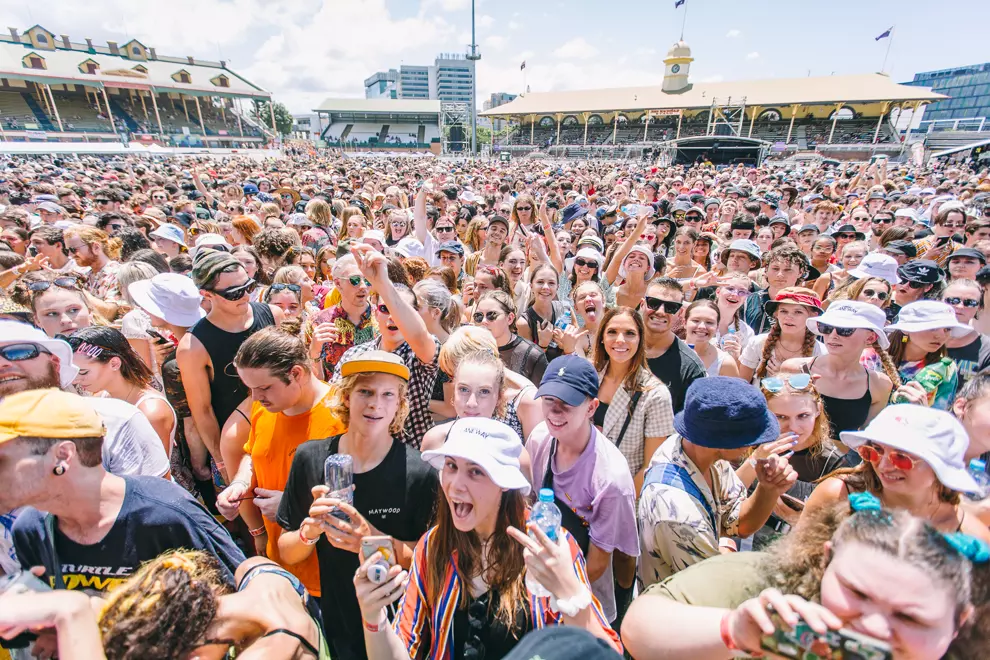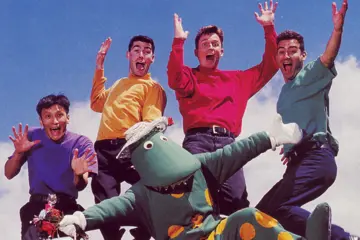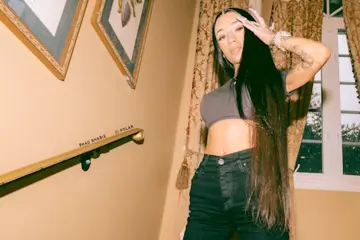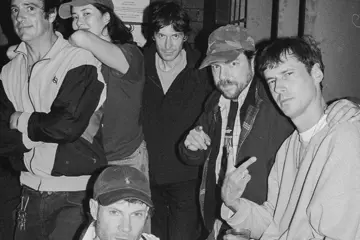St Jerome's Laneway Festival has endured as one of Australia’s few remaining nationally touring summer music festivals. It has survived the same two decades that saw Livid, Big Day Out, Harvest, Future Music, and Parklife all crawl into an elephant’s graveyard. Surely to the surprise of industry insiders and fans alike, Laneway - initially viewed as an alternative experience, literally taking place in laneways - has gradually Steven-Bradbury-ed its way to becoming the big-ticket, single-day music festival in Australia. Considering also that the festival accepts underage admissions (16+), it seems the festival increasingly functions almost as a rite of passage for young music fans.
As to the manner in which the festival will continue to evolve in this new decade, only time will tell – it’s notable that this year’s line-up is perhaps the most conspicuously millennial that the festival has offered yet. However, with the last-minute cancelling of a headliner, this year’s sold-out Brisbane event hasn’t been one most attendees would consider ideal.
First, there is the heat. The insufferable, unbearable, indomitable heat. Without getting into climate debates, this is not necessarily an unusual development for a summer festival. But what is perplexing is the decision to give KUČKA an early afternoon slot on the Future Classic Stage. The singer and producer makes nighttime music, and while this may not be a genre recognised by any self-respecting academy, it certainly is a form of categorisation that should be taken into greater consideration. Some music suits the daytime; some music suits the nighttime. Laura Lowther records in her bedroom studio in Perth, and her brand of avant-electronic music is made for the dark. The sensuality in her voice invites intimacy and vulnerability, which seem impossible to achieve while suffering under the sun’s fiery rays. It all seems like some kind of cosmic joke.
Speaking of which, Tones & I is performing on the main stage. The Mornington Peninsula singer-songwriter has skyrocketed to fame with a maddeningly catchy song about being forced to perform the same routine for audiences every night. The song is called Dance Monkey. You cannot make this kind of thing up. There is something cruel and sadistic about the song becoming a chart-topping success, the kind that most artists in Toni Watson’s position are subsequently fated to perform for the remainder of their careers; we are truly living in the darkest timeline.
 Toni Watson @ St Jerome's Laneway Festival. Photo by Daniel Boud.
Toni Watson @ St Jerome's Laneway Festival. Photo by Daniel Boud.
Don't miss a beat with our FREE daily newsletter
In the studio recordings of her music, Watson’s unnerving voice warbles somewhere between Lorde and Bjork. The effect is hard to control live, especially on a stage the size of the Good Better Best, resulting in an uneven performance of covers and originals. When she does eventually, inevitably perform Dance Monkey, the crowd writhe and sway in unison, singing every word. This raises a troubling new possibility: maybe we were the dance monkeys all along.
Across the festival, in the Never Let It Rest marquee, Pist Idiots are making lots of noise. Too much noise, one might even argue.
Outside that nightmarish chamber of echo and chaotic reverb, Melbourne neo-soul singer Kaiit is singing beneath a blue sky on the Spaced Out Stage. A breeze has arrived, and it is difficult to shake the suspicion that she is somehow responsible for this. Charismatic and confident, she glides through a set of uplifting songs, including Natural Woman and Miss Shiney, designed to move bodies and minds. It’s a breath of fresh air.
 Kaiit @ St Jerome's Laneway Festival. Photo by Dave Kan.
Kaiit @ St Jerome's Laneway Festival. Photo by Dave Kan.
Over on the main stage, Hockey Dad are also capitalising on the sunshine. As indicated by its title, the Windang duo’s 2018 album, Blend Inn, is a move towards some kind of vague social consciousness – particularly when compared to their breakthrough single, I Need A Woman. As such, songs like I Wanna Be Everybody and Join The Club feel very ‘90s in their rallying against conformity. All they need now are bucket hats! The singalongs are simultaneously fervent and carefree because the crowd understand: you only get what you give.
At the Never Let It Rest Stage, the marquee is at capacity, with people squeezing around the edges to try and catch of glimpse of New Zealand singer-songwriter BENEE. Stella Bennett isn’t the only teenage pop sensation on this year’s line-up, but she’s by far the most compelling. Accompanied by a four-piece band, her performance is playful and expressive, seeming unburdened by the weight of expectations. Soaked, Monsta, Find An Island, and Evil Spider are all crowd favourites, although it’s a line from Supalonely that’s the real highlight, and a mantra for our online selves: “I've been lonely, mm, ah, yeah.”
 BENEE @ St Jerome's Laneway Festival. Photo by Bianca Holderness.
BENEE @ St Jerome's Laneway Festival. Photo by Bianca Holderness.
Freemantle band Spacey Jane have the enviable sunset slot on the Spaced Out Stage this year, and their music is perfect for the occasion. Songs like Good Grief and Feeding The Family are soundtracks to bottoming-out, blurring the line between being burned out and blissed out. “I just saw a girl on a guy’s shoulder vomit on his head over here,” says singer Caleb Harper. When the guitar lines are this good, there’s really no need for the rest of the songwriting to be exceptional too, but Harper’s lyrics are often exceptional regardless, perhaps most strikingly during the chorus of Head Cold: “Your head turns when I start speaking/Away, towards, it makes no difference.” The sun’s coming down, and so are we.
If one is looking for more subtle complexity and poetic imagery, it’s best to avoid The Chats. Beneath the Never Let It Rest marquee, the Sunshine Coast band serve the essentials: drums, bass, guitar. As lead singer and bassist Eamon Sandwith explains during Pub Feed, “All I need is a good pub feed.” Anything else would be suspect. Well, almost anything. “At Laneway, we’re all about the music,” Sandwith says between songs. “But there’s one more important thing than music, and that’s the pingers!” They write songs about getting the clap, running out of bus money, and drinking VB, washed down with some mid-strength misanthropy. Their anti-social anthem, Smoko, draws a crowd, but most festival attendees have chosen to see Ocean Alley instead.
According to Wikipedia, Ocean Alley are an "alternative reggae-rock band from the Northern Beaches, Sydney". Presumably, they played some alternative reggae-rock on the main stage. It’s likely they played their hit song Confidence, and there was much rejoicing.
However, it seems unlikely anything could be more refreshing at this time of day than Hatchie’s set at the Future Classic Stage. Harriette Pilbeam’s dreamy soundscapes swirl through the space, welcoming the nighttime with open arms. The stars are out, quite literally – there’s four giant ones being used as stage props. The synths on Sleep are magic, making parting such sweet sorrow.
By contrast, listening to Ruel’s music is enough to make someone wish they were already asleep; it’s a snooze. Nonetheless, the 17-year-old singer-songwriter from Sydney has an ardent fanbase that crowds the amphitheatre. While he seems like a gifted singer, he uses his voice in the most conventional ways, and there’s only so long a casual listener can remain entertained. “I just want the real thing,” he sings during Real Thing, although his music is currently too sanitised to resemble any of the messy emotions and experiences he’s trying to convey. Luckily for him, it looks like he’ll have a healthy support base while he develops as an artist.
 Ruel @ St Jerome's Laneway Festival. Photo by Bianca Holderness.
Ruel @ St Jerome's Laneway Festival. Photo by Bianca Holderness.
It’s not like Earl Sweatshirt wasn’t initially copying those around him in his early days, too. However, since then, the poet-philosopher from California has moved away from the shock tactics employed by his peers in the now-defunct rap group, Odd Future. His music has grown increasingly personal, as well as increasingly experimental and ambitious. His most recent album, for instance – 2018’s Some Rap Songs – found him working through the recent death of his estranged father, South African Poet Laureate Keorapetse Kgositsile. It’s sombre subject matter, and Earl’s live shows are similarly intense. There’s a cheer for Pre, from his 2013 debut album, although mostly the audience is held enraptured by his wildly unpredictable and inimitable new material.
 Earl Sweatshirt @ St Jerome's Laneway Festival. Photo by Bianca Holderness.
Earl Sweatshirt @ St Jerome's Laneway Festival. Photo by Bianca Holderness.
At a festival the size of Laneway, it’s easy to prioritise seeing international acts. But it’s just as often the local artists that end up being the highlights, and Stella Donnelly steals the day with a supremely delightful, utterly moving, and just generally life-giving performance at the Spaced Out Stage this evening. There’s a pink leotard, green tights, synchronised dance moves, recorder solos, happy songs, sad songs, and plenty of mistakes; but it all adds up to a performance that simply feels human. It’s a gift, honestly.
 Stella Donnelly @ St Jerome's Laneway Festival. Photo by Bianca Holderness.
Stella Donnelly @ St Jerome's Laneway Festival. Photo by Bianca Holderness.
Meanwhile, on the main stage, Charli XCX seems to have evolved beyond a merely-human existence. Silhouetted in front of a giant cube, she totally and completely embodies the android character she’s established on songs like Femmebot. Her choreography is flawless. Her singing is flawless. Her hair extensions, obviously, are flawless. She powers through some of her greatest hits so far – I Love It, Boys, 1999 – while also finding time for more experimental fan favourites like Unlock It, Track 10, and Girls Night Out.
 Charli XCX @ St Jerome's Laneway Festival. Photo by Bianca Holderness.
Charli XCX @ St Jerome's Laneway Festival. Photo by Bianca Holderness.
Unfortunately, the mood is somewhat tempered by the announcement that The 1975 have had to cancel their headlining appearance due to health concerns; while Charli XCX is fantasising about returning to 1999, many festival attendees are suddenly nostalgic for half an hour ago, when the Manchester band were still scheduled to appear. Maybe the real dance monkeys were the dance monkeys we made along the way?
To be sure, American rapper JID is giving an arresting, high-energy performance at the Spaced Out Stage; but his rapid-fire hip hop is a very different vibe to the art-pop that many attendees were hoping to see at this hour.
 JID @ St Jerome's Laneway Festival. Photo by Daniel Boud.
JID @ St Jerome's Laneway Festival. Photo by Daniel Boud.
Thankfully, a solution has presented itself: King Gizzard & The Lizard Wizard will move their set from the Never Let It Rest marquee to the main stage. All hail our lizard overlords.
And in a way, it’s fitting. Both bands embrace contradiction and change as constant states of being, and despite their stylistic differences, The 1975 and the Gizzard share many thematic concerns. For instance, they’re both obsessed with endings. “No one’s got Corona virus yet?” guitarist Joey Walker asks, before the band launch into a selection of songs from the band’s latest musical excursion into heavy metal, a concept album about the end of the world that’s titled Infest The Rats’ Nest. Their songs include Mars For The Rich, Organ Farmer, and Self-Immolate.
And so while The 1975 aren’t here physically, they’re certainly still here spiritually. During their recent tours, after they’ve performed I Always Wanna Die (Sometimes) – their own Self-Immolate – the band have been putting down their instruments while Greta Thunberg’s speech to the UN plays over a recording of one of their self-titled instrumental tracks. Because, as the Gizzard have put it in their own song, Planet B, amid screaming guitars: “There is no Planet B.” And like Matty Healy, the members from both bands, and the rest of us, we’d love it if we made it out of this century.
 King Gizzard & The Lizard Wizard @ St Jerome's Laneway Festival. Photo by Bianca Holderness.
King Gizzard & The Lizard Wizard @ St Jerome's Laneway Festival. Photo by Bianca Holderness.
















